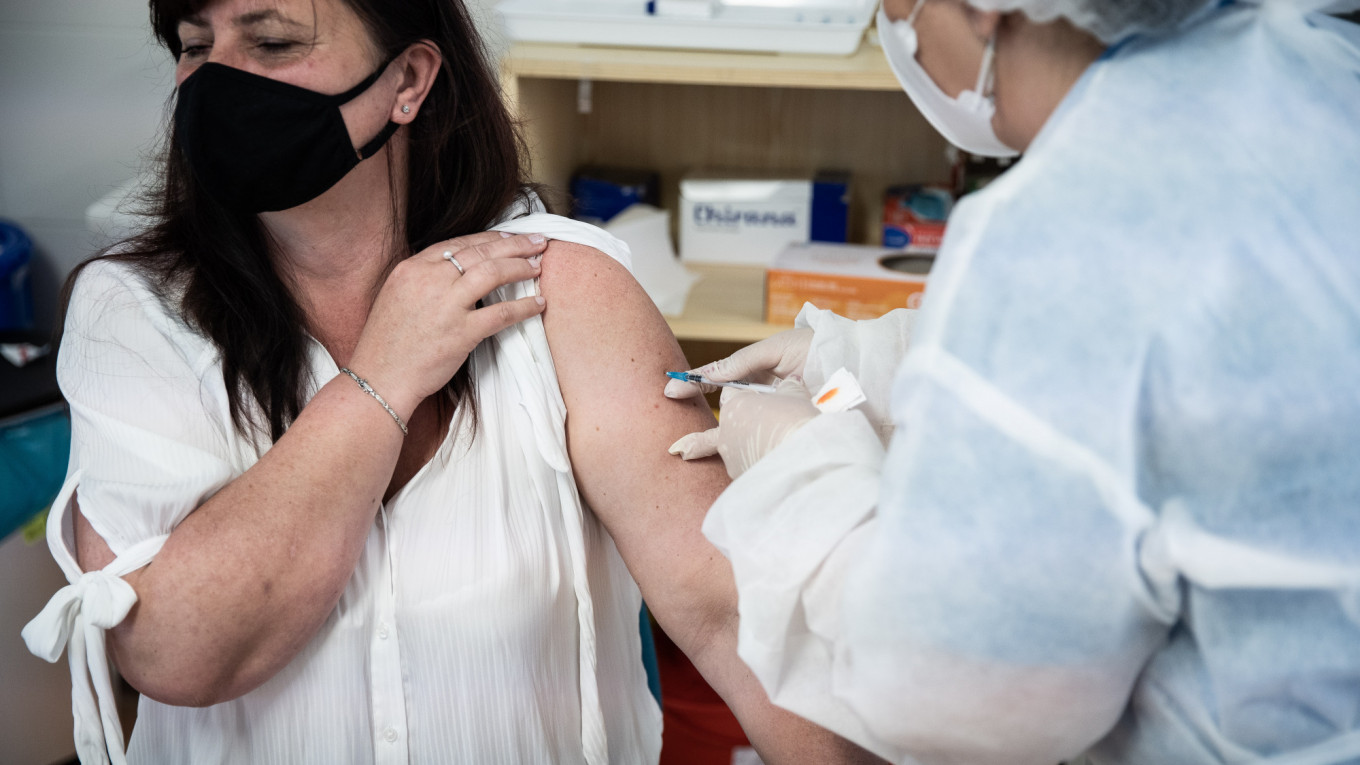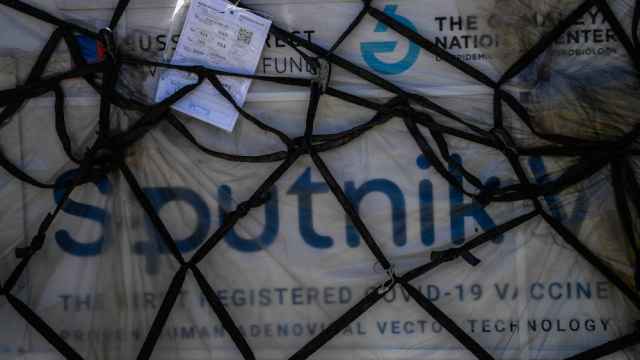A majority of Europeans do not trust Russian coronavirus vaccines, according to a study by the European Council on Foreign Relations (ECFR) cited by the RBC news website Thursday.
The results come as President Vladimir Putin orders officials to develop a “vaccine tourism” plan and as the European Union's medicines regulator continues its ongoing review of Russia's Sputnik V vaccine. Russia has sought EU approval of the vaccine as it struggles to convince its own population to get vaccinated amid widespread skepticism.
Only 7% of Europeans fully trust Russian-developed coronavirus vaccines, while 26% said they trust them to an extent.
Meanwhile, 30% of European respondents said they slightly distrust Russian vaccines and 25% said they don’t trust them at all.
“When it comes to health, Europeans trust Western medicine more than any other, especially when it comes to vaccines,” RBC quoted ECFR experts as saying.
Trust levels varied by country, with about half of respondents in Italy, Hungary and Bulgaria saying they trust Russian vaccines versus just 12% in Poland who said the same.
Russia’s Sputnik V vaccine has been undergoing a rolling review with the European Medicines Agency (EMA) since March. The World Health Organization is also wrapping up its own review of Sputnik V and preparing a report with its recommendations.
EU members Hungary and Slovakia broke with the bloc by granting emergency use authorization to Sputnik V ahead of the EMA decision.
Some members however have voiced reluctance over Sputnik V, saying EU approval of the vaccine would give Russia a geopolitical win.
Kirill Dmitriev, the head of Russia’s sovereign wealth fund that funds and markets Sputnik V, has described the EMA’s approval process as “An absolutely working process ... which, we hope, will not be politicized.”
The ECFR’s survey was conducted by the Datapraxis, YouGov, Dynata, AnalitiQs and Alpha pollsters among 17,200 people from 12 European Union member states from March-April 2021.
A Message from The Moscow Times:
Dear readers,
We are facing unprecedented challenges. Russia's Prosecutor General's Office has designated The Moscow Times as an "undesirable" organization, criminalizing our work and putting our staff at risk of prosecution. This follows our earlier unjust labeling as a "foreign agent."
These actions are direct attempts to silence independent journalism in Russia. The authorities claim our work "discredits the decisions of the Russian leadership." We see things differently: we strive to provide accurate, unbiased reporting on Russia.
We, the journalists of The Moscow Times, refuse to be silenced. But to continue our work, we need your help.
Your support, no matter how small, makes a world of difference. If you can, please support us monthly starting from just $2. It's quick to set up, and every contribution makes a significant impact.
By supporting The Moscow Times, you're defending open, independent journalism in the face of repression. Thank you for standing with us.
Remind me later.






